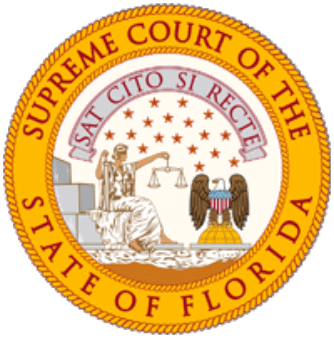 The Florida Bar Foundation May 15 will facilitate Everyone Counts, an initiative to take a census-like count of self-represented litigants on a single day in the Miami-Dade court system. Self-represented litigants are those who do not use or cannot afford to use a lawyer to represent themselves in civil court cases.
The Florida Bar Foundation May 15 will facilitate Everyone Counts, an initiative to take a census-like count of self-represented litigants on a single day in the Miami-Dade court system. Self-represented litigants are those who do not use or cannot afford to use a lawyer to represent themselves in civil court cases.
First conducted in March 2017, Everyone Counts found that 63 percent of litigants were self-represented, and that domestic violence court had the highest number of self-represented litigants at more than 80 percent.
“This effort, coordinated with the Eleventh Judicial Circuit, will provide additional data that is currently not available in Florida,” said Claud B. Nelson III, the Foundation’s pro bono program officer. “By gathering information on those who have no attorney representation, we can devise effective ways to support them and improve the judicial system for all.”
Volunteer lawyers and law students are needed to observe court proceedings in two-hour shifts at any of the 10 Miami-Dade courthouses. Lawyers who volunteer are eligible to attend a webinar and earn one free Continuing Legal Education (CLE) credit. Volunteers can register at www.fundingfla.org/everyonecounts/.
According to the Self-Represented Litigation Network, three out of five people in a civil case represent themselves in court. Litigants who represent themselves are at a distinct disadvantage. A Colorado Center on Law and Policy study found that renters who lacked legal representation were evicted 68 percent of the time from private housing. Meanwhile, those who were represented by counsel were evicted only 6 percent of the time.
In 2017, nearly 40 volunteer attorneys observed 190 hearings involving 277 litigants in seven Miami-Dade courthouses during Everyone Counts. Matters included domestic violence, family law, dependency, foreclosure and others.
The lack of representation in domestic violence cases is troublesome, particularly in high-stakes matters such as restraining orders. In follow-up discussions, judges told Everyone Counts organizers that domestic violence cases were sometimes delayed multiple times due to procedural issues that would have been less likely to occur if an attorney had been involved. The consensus was that attorney representation makes the judicial system function more efficiently.




